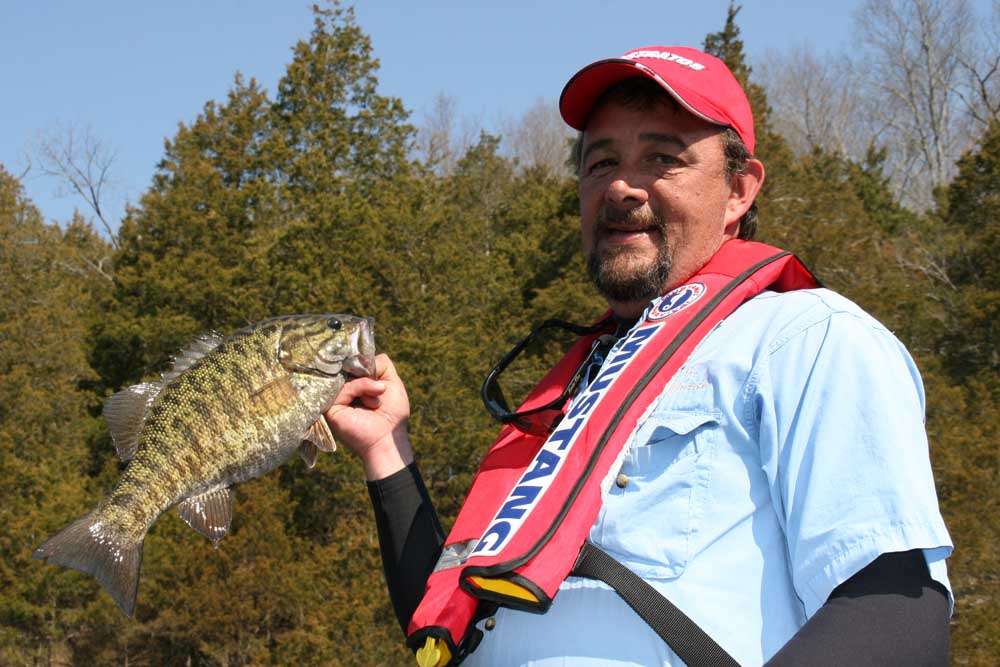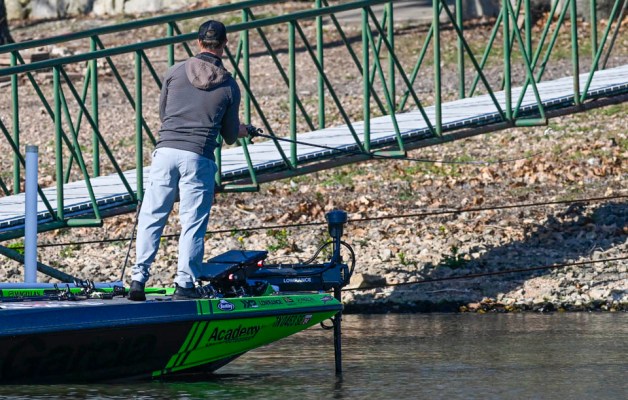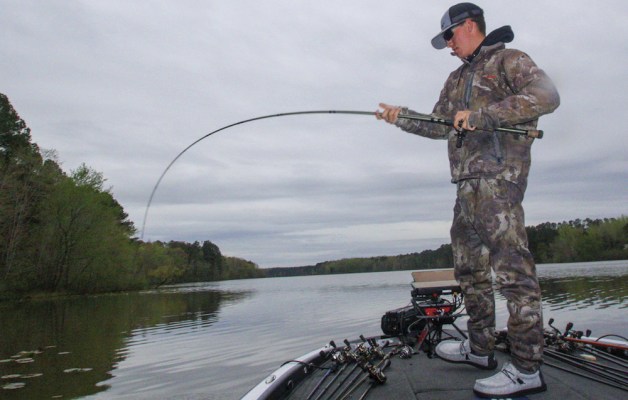
In the first part of this night fishing series, we covered some of the preparation you can and should do in the winter in order to maximize your success later in the year. In this installment, I want to talk about gear and the basic equipment that will make your night fishing more productive and more enjoyable.
Let there be light
Obviously, the biggest difference between fishing during the day and fishing at night is visibility. You can’t see as well once the sun goes down, you can’t watch your line, and it gets tough to change baits and do all the ordinary things you have to do over the course of a fishing trip.
There’s not a lot you can do about some of that, but there’s one thing you can do to improve the kind of visibility that will make a big difference to your fishing, and that’s to get a good quality black light. That’s right, they’re not just for your old Jimi Hendrix posters anymore. A good black light will illuminate fluorescent fishing lines without creating a distracting glow for the bass. My favorite is the Castglo from Punisher Lures. It’ll light up your line and is very easy to use.
But a black light won’t work unless you use the right line, and the right line means fluorescent. I like Bass Pro Shops Excel monofilament in clear blue. Fluorocarbon might make a lot of sense because it doesn’t stretch as much and it sinks, but for me it’s far more important to be able to see the line. After all, I see more bites through line movement than I feel.
When braid is the answer, I like Berkley FireLine Crystal. It shows up pretty well under a black light, though not as well as the mono.
As for line size, I generally stick with 10-12-pound test if the water’s clear and go a little heavier (14-17) if it’s stained. I’ll also use the heavier line with certain baits, like jigs and spinnerbaits.
Ship-shape
If you’re going to fish at night, you must be certain that key components of your boat are working flawlessly. The first of those is your running lights.
It’s illegal in every state I know of to operate your boat after dark without running lights. That’s important because it could result in a fine. What’s more important is that it’s extremely dangerous to operate without running lights. It could get you killed, so make sure they’re working properly and keep them on the entire time you’re out there.
Another item I won’t leave the dock without is a powerful spotlight. They make them to several million candlepower now, and they’re relatively inexpensive. A good one will really light up the night, show you where you’re going, help you find a critical landmark, make it easier to put your boat on the trailer and generally give you a better experience on the water. Get one and keep it charged, plugged in or full of fresh batteries.
Buoys that glow in the dark or flash are a nice accessory if you’re fishing offshore. Yes, a good GPS can help —and you should have one of those, too —but buoys that you can drop on key structure close to where you need to cast are a good idea. It’s far easier to get turned around or disoriented at night than when fishing during the day.
Know where you’re going and how to get back
In these days of GPS, it seems like paper maps have just about disappeared. Call me old school, but I still keep maps in my boat —especially at night —even though I may not use them like I used to. What if my GPS fails or can’t locate the satellites necessary to identify my position? A good map can save the day —I mean, night —and keep me out of trouble.
And get to know a body of water before you go out on it at night. You need to spend some time on the water during the day to get your bearings, learn the lay of the lake and identify some landmarks that could help you after dark. The better you know the water from being out during the day, the safer and better your experience will be at night.
Next time we’ll get down to the real meat of night fishing —what makes for a good night fishing lake, what sort of areas to look for and fish and how you should be fishing differently once the sun goes down.
Editor’s Note: You can contact Bobby Gentry at (270) 427-0419 or through his website.




